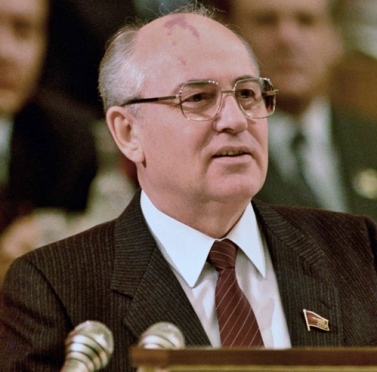August 24 in History
1991 – Mikhail Gorbachev resigns as head of the Communist Party of the Soviet Union
Mikhail Sergeyevich Gorbachev (born March 2, 1931), the eighth and last leader of the Soviet Union, while committed to preserving the Soviet state and to its socialist ideals, believed significant reform was necessary, particularly after the 1986 Chernobyl disaster. He withdrew from the Soviet-Afghan War and embarked on summits with United States president Ronald Reagan to limit nuclear weapons and end the Cold War. Domestically, his policy of glasnost (openness) allowed for enhanced freedom of speech and press, while his perestroika (restructuring) sought to decentralize economic decision-making to improve efficiency. His democratization measures and formation of the elected Congress of People’s Deputies undermined the one-party state. Gorbachev declined to intervene militarily when various Eastern Bloc countries abandoned Marxist–Leninist governance in 1989–90. Internally, growing nationalist sentiment threatened to break up the Soviet Union, leading Marxist–Leninist hardliners to launch the unsuccessful August Coup against him in 1991. In the wake of this, the Soviet Union dissolved against Gorbachev’s wishes and he resigned on this day in 1991. After leaving office, he launched his Gorbachev Foundation, became a vocal critic of Russian Presidents Boris Yeltsin and Vladimir Putin, and campaigned for Russia’s social-democratic movement.
-Wikipedia


